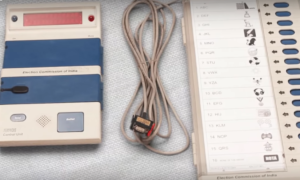How to manage stress for a productive life?

Typical out-of-control stress could be a stress that is a) too frequent, b) too severe, or c) too much for you.
The challenge is to manage the fine line between positive stress and negative stress. For this, you need to observe and understand your stressors ( what gives you stress) and your typical responses to them.
 Stress is good, but up to a limit. Until this limit line, your performance and efficiency increase with added anxiety/stress… that is you do better with positive stress. Added stress beyond this limit line, I.e. negative stress causes a drastic decline in our performance.
Stress is good, but up to a limit. Until this limit line, your performance and efficiency increase with added anxiety/stress… that is you do better with positive stress. Added stress beyond this limit line, I.e. negative stress causes a drastic decline in our performance.
In other words, up to the limit line of positive stress, we are anti-fragile and gain from stress. Beyond this limit line when the stress is out-of-control, we are fragile.
Typical out-of-control stress could be a stress that is a) too frequent, b) too severe, or c) too much for you.
The challenge is to manage the fine line between positive stress and negative stress.
For this, you need to observe and understand your stressors ( what gives you stress) and your typical responses to them.
How do you deal with your stress in the-heat-of-moment?
What do you do for this stress over the long term?
Two quick tips to regulate your responses are:
If you get a sudden urge to do something—>plz don’t do It, be still.
When the stakes are high —> Go slow
Be still is very different from doing nothing. Going slow helps us to ‘delay-the-gratification’ playing a very important role to control the urge and to think about the temptation in the-heat-of-moment and long term.
One way to ‘delay the gratification’ is to consciously create some meaningful-distraction.
Out-of-control stress, ie. negative stress creates ”learned helplessness” is us.
By being in negative stress,
1.Hampers new memory formation our brain, thus we start forgetting things.
2.Damages our immune system, thus, we fall sick very easily.
3.Our Brain shrinks, physically, which is surely bad.
So we want to do something about this out-of-control negative stress, right? Yes but how and what? Very simple: Get control over the situation that causes this stress.
1.Shun load: if something is too heavy to change just offload it
2.Get moving: let go of something that’s small but brutally nagging.
3.Reframe: stress matters but what matters most is how do you think about stress.
Most of the time, a situation goes out of control because we haven’t checked back periodically. Remember the old story that, why was roti burnt? why was the beetle-gum spoiled? And did the horse stumble?— the common answer is “फेरा-न-था” that is no check back!
So think about the situation, act on it, have periodic check back and get a plan-b for required course correction.
While thinking about your own acts, we tend to be a more critical than it should be, so think of yourself as your friend and have self-compassion. Remember, to err-human and you are human too.
So instead of blaming yourself or others, get on to have a growth mindset to learn from mistakes with a willingness to be ok with new mistakes.
Reframe your situation to remember the big picture, the deeper yes, the meaningful purpose, it will help you keep afloat at times of stress. That is instead of thinking about and extra hour at work as answering emails for 60 min, reframe it as an act of helping your career, that will bring happiness to you and your family.
Rely on routines: Save energy for bigger decisions. For smaller things make a routine, don’t add the stress of “आज खाने में क्या बनेगा?”.
Understand the difference: brushing your teeth is a decision at night but a routine in the morning.
Pack up your energy juice by taking 5 to 10 min to do something you find interesting with newness to it!
Add when + where to your to-do jobs, remind yourself of the top-3 tasks of the day and have an [ if-then] plans for them.
When confronted with a stressful situation? Do the self-interrogative talk:
Can I fix it? Have an [ if-then ] writing for it too just before the stress takes its toll on you!
See your work in terms of progress. Focus on small numbers, I.e when starting a job, focus on a small part of a job that you did in such a short time.
While about to finish the job, focus on the small portion of the job that’s left to be finished.
At stressed times think about the progress, reflect on the past accomplishment, focus on small wins.
Get growth mindset: get better at improving, at developing new skills. While comparing, compare with your past performances.
Know your Focus:: Are you promotion focussed or prevention focussed?
Promotion focus:: Some think about a job as opportunities for achievement, maximising gains, they approach it with eagerness.
Prevention focus:: these people tend to hang on, they focus on minimising loss. They are vigilant, the keep thinking “what might go wrong?”
A successful navigation of various affairs of life requires, thinking about both, a promotion focus action with a preventive focus check-back.
(Shekhar Chandra is an IIT-Delhi alumnus.He has over a decade of entrepreneurial experience and leadership Excellence. He is also a member of Big Wire editorial team. Reach him at YouLEAD)












































